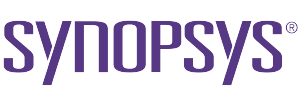Accelerate time to market
Whether you’re working on data analytics systems to process satellite or surveillance data, telecommunication networks, or threat-warning systems, there’s not much room for error.


Accelerate time to market
Whether you’re working on data analytics systems to process satellite or surveillance data, telecommunication networks, or threat-warning systems, there’s not much room for error.
Building fail-proof mission-critical systems on time and on budget
Business challenges
When defects crop up, development is blocked and releases can’t go live.
Failing tests must be resolved. But the inability to reproduce defects can be a big issue. And often test rigs sit in a secured environment; so engineers will not discover until the next morning that their tests failed 10 minutes after they left the building. Hugely frustrating and a serious waste of time.
Worse still, when problems arise, engineers can easily spend 100% of their time on root cause analysis – which can slow the whole project down and pause risks to schedules.
Solution
LiveRecorder’s time travel debugging platform can help you to:
- Accelerate root cause analysis of test failures, including flaky tests
- Ensure software resilience and robustness according to strict standards
- Deliver high-profile projects on time; mitigate against the risk of project cancellation and SLA penalties
Time travel debugging offers a strategic capability for accelerating product delivery, by eliminating the guesswork in defect root cause analysis.
LiveRecorder is the leading time travel debugging platform for C/C++ and Java applications.
Integrated into automated testing and a CI/CD workflow, LiveRecorder enables test failures to be resolved faster. This includes flaky tests caused by intermittent failures, which are so often responsible for delaying release schedules.
- Get 100% visibility into what the program did and why
- Use a systematic repeatable debugging workflow
- Make bug fixing predictable
Traditional methods of software debugging rely on the ability to reproduce software failures, which can be costly and take huge amounts of time.
- Don’t waste time trying to reproduce a bug; simply record the failed process down to instruction level (capturing bugs in the act)
- Get an exact copy of what the failed process did, at any point in the program’s execution
- All events, interrupts, memory allocation, changes to disk contents, user inputs, and device outputs are added to the recording
A recording provides engineers with a carbon copy of what happened without them having to spend time reproducing the problem. Engineers can efficiently zero-in on the problem bug using LiveRecorder’s reverse-debugging capability.


Traditional methods of software debugging rely on the ability to reproduce software failures, which can be costly and take huge amounts of time.
- Don’t waste time trying to reproduce a bug; simply record the failed process down to instruction level (capturing bugs in the act)
- Get an exact copy of what the failed process did, at any point in the program’s execution
- All events, interrupts, memory allocation, changes to disk contents, user inputs, and device outputs are added to the recording
A recording provides engineers with a carbon copy of what happened without them having to spend time reproducing the problem. Engineers can efficiently zero-in on the problem bug using LiveRecorder’s reverse-debugging capability.
Deliver quality software
Innovate faster
Increase engineering efficiencies









